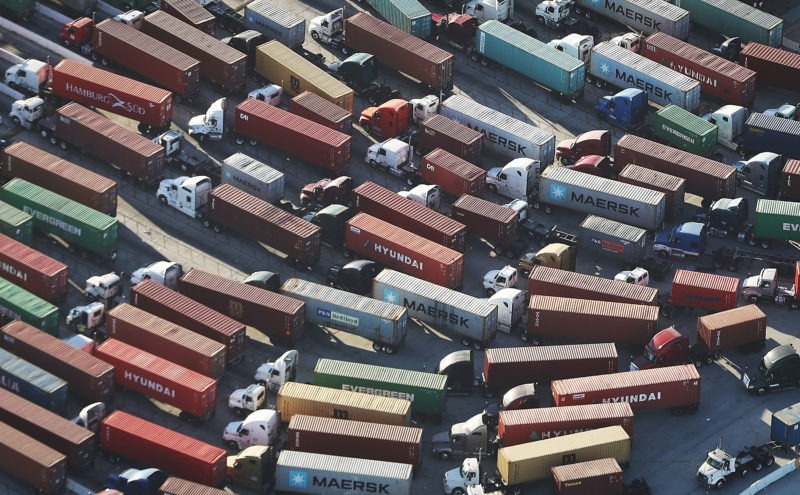Asian markets hit as investors spooked by trade pact delay talk
While reports of a delay to the signing of the trade pact have jolted investors, officials say it is still on track (MARIO TAMA)
Hong Kong (AFP) – Asian markets mostly fell Thursday after investors were spooked by speculation the much-anticipated signing of the China-US trade pact could be delayed.
Broad-based optimism that the economic superpowers would soon complete part one of a wider agreement has been the basis of a rally in global equities for several weeks.
But that confidence was given a slight jolt Wednesday by reports that a planned meeting between Donald Trump and Xi Jinping to put pen to paper may be put back to December as they iron out some issues and try to find a place to hold the ceremony.
A day earlier, the Financial Times and Wall Street Journal had said the White House was considering dropping existing tariffs on more than $100 billion of imports to seal an agreement.
While officials said the deal is still on track, a seed of doubt was planted in the minds of nervous traders, who have witnessed several false dawns in the past.
“One could take the view that by not committing to meet the original deadline for signing the so-called phase one agreement… it gives more time for a somewhat more comprehensive agreement to be thrashed out — potentially involving a US commitment to wind back some existing tariffs,” said National Australia Bank’s Ray Attrill.
“But markets have understandably jumped the other way, exhibiting a slight loss of confidence that anything more substantial than an agreement not to further lift tariffs — in return for some increase in US agricultural purchases — can be agreed.”
– Weighing the risks –
Wall Street ended flat and Asia struggled in early business.
Hong Kong fell 0.5 percent after five days of gains, while Shanghai was off 0.3 percent, while Singapore eased 0.1 percent, Seoul shed 0.2 percent and Taipei gave up 0.5 percent. Tokyo was slightly lower at the break.
There were gains, however, in Sydney and Manila.
Stephen Innes, senior market analyst at AxiTrader said investors were trying to weigh the risks.
“A possible rollback in a chunk of tariffs should be a monumentally more colossal affair than a delay in the date from mid-November to December,” he said in a note.
“But… with delay comes the chance that risk-on sentiment has too long to ferment, stalls and then maybe reverses as the waiting game weighs.”
Oil prices stabilised after tumbling more than one percent Wednesday in reaction to a bigger-than-expected build in US reserves as well as worries that major producers will not push for deeper output cuts.
With OPEC and other top producers led by Russia meet next month, Bloomberg News cited sources as saying they were likely to maintain their current agreement for caps — which are due to run out in March — well into 2020.
The limits have helped support oil prices for years, in the face of weakening demand, the China-US trade war and slowing global economic growth.
“It will prove very difficult to formally agree new, deeper cuts,” Harry Tchilinguirian, head of commodity markets strategy at BNP Paribas, said. “A rollover of current cuts for the rest of 2020, with an emphasis on compliance by all members, is the path of least resistance.”
– Key figures around 0230 GMT –
Tokyo – Nikkei 225: FLAT at 2,294.96 (break)
Hong Kong – Hang Seng: DOWN 0.5 percent at 27,559.47
Shanghai – Composite: DOWN 0.3 percent at 2,970.95
Euro/dollar: DOWN at $1.1065 from $1.1068 at 2130 GMT
Dollar/yen: DOWN at 108.79 yen from 108.97 yen
Pound/dollar: DOWN at $1.2842 from $1.2854
Euro/pound: UP at 86.16 pence from 86.11 pence
West Texas Intermediate: DOWN two cents at $56.33 per barrel
Brent North Sea crude: DOWN two cents at $61.72 per barrel
New York – Dow: FLAT at 27,492.56 (close)
London – FTSE 100: UP 0.1 percent at 7,396.65 (close)
Disclaimer: Validity of the above story is for 7 Days from original date of publishing. Source: AFP.


